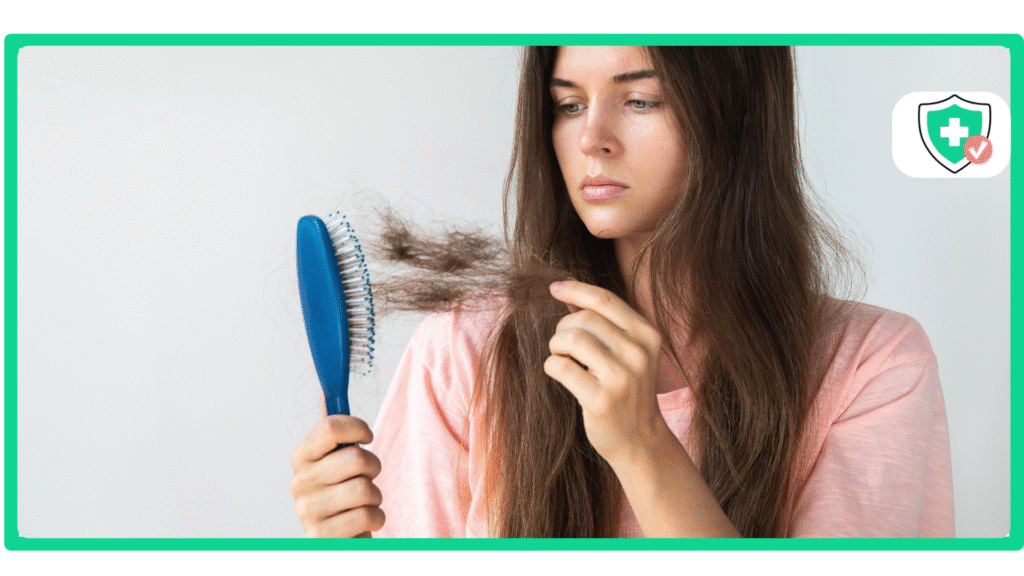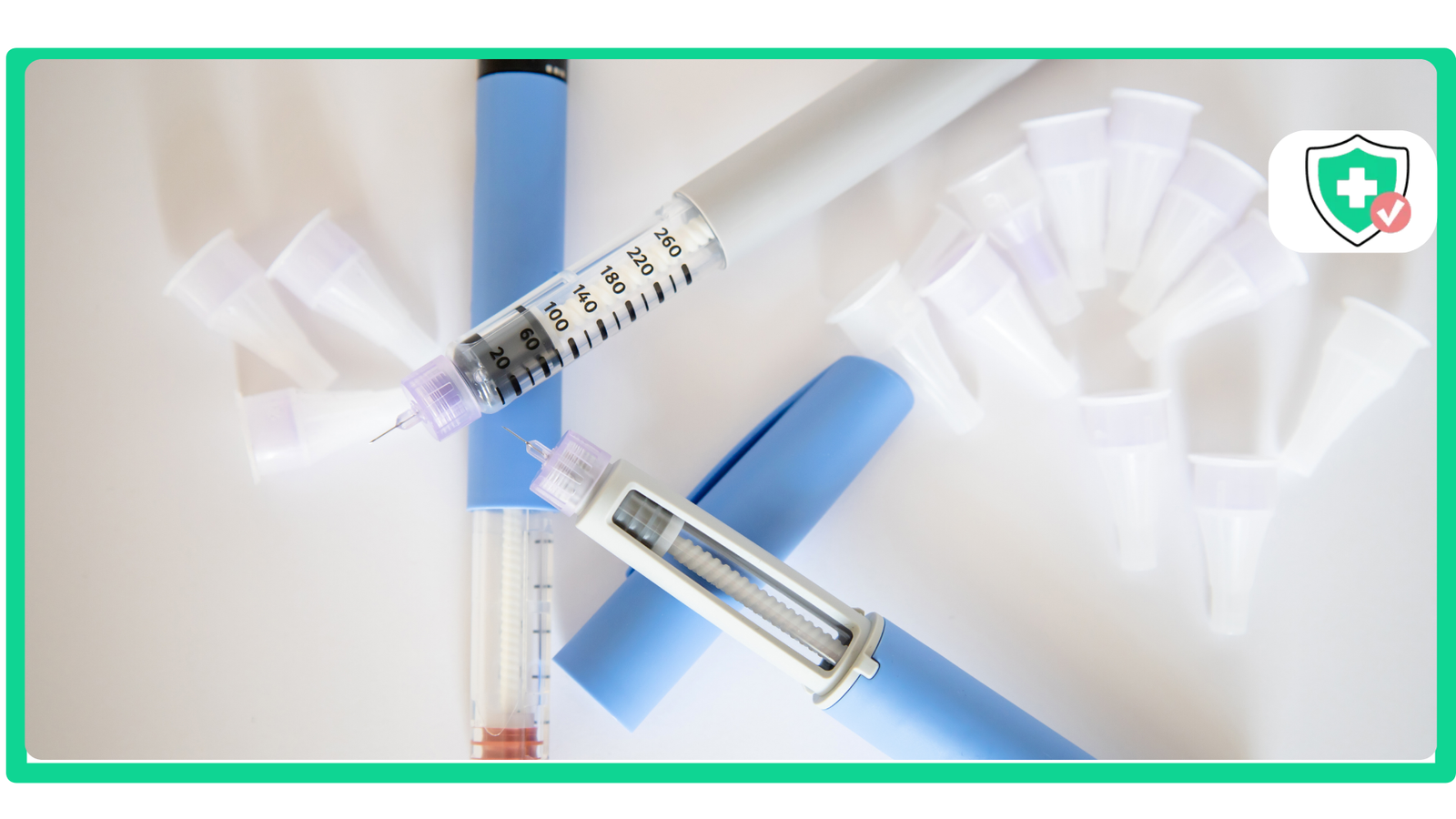You have started a new journey to a healthier you with semaglutide. You are feeling good and seeing positive changes. But then you hear something that makes you worry: can this medication make your hair fall out? It is a scary thought, and it’s a very common concern. You are right to ask the question, does semaglutide cause hair loss? We are here to give you a clear, science-backed answer and to help you understand what is really going on.
The Straight Answer: Is the Medication to Blame?
Let’s get right to the main point. The medication, semaglutide, is not known to directly harm your hair. It does not attack your hair follicles or tell your hair to fall out.
In some medical studies, a very small number of people (about 3 out of 100) reported some hair thinning. But the real story is a little more complex. The hair loss is usually an indirect result of something very positive that the medicine does: it helps you lose weight.
The Real Culprit: Rapid Weight Loss and Your Hair
The most common reason for hair thinning during this journey is a condition called Telogen Effluvium. That sounds like a very big and scary science word, but the idea is actually very simple.
Think of it like your body has a “panic button.” When your body goes through a big, stressful change, it hits the panic button. This stress can be from things like a high fever, a surgery, or even rapid weight loss.
When the panic button is pushed, your body decides to save its energy for the most important jobs, like keeping your organs healthy. It puts less important jobs, like growing hair, on the back burner for a little while.
So, a bunch of your hair follicles go into a “resting” phase all at once. Then, about two or three months later, you will notice more shedding than usual.
The most important thing to know is that this is temporary. Your hair follicles are not damaged. Once your body gets used to your new, healthier weight, the shedding stops, and your hair starts to grow back normally. So, while the answer to does semaglutide cause hair loss can be yes, it’s not the drug itself causing it.
The Role of Nutrition in Hair Health
There is another reason you might see some hair thinning. When you are eating less food, it can be a challenge to get all the vitamins and nutrients your body needs to keep your hair strong.
Your hair is made of protein, and it needs a lot of other nutrients to grow well. Here are some of the most important ones for healthy hair:
- Protein: This is the main building block of your hair.
- Iron: This helps keep your hair follicles healthy.
- Zinc: This helps with hair growth and repair.
- Biotin: This is a famous B-vitamin for hair strength.
When your appetite is lower, you have to make sure the food you do eat is packed with good stuff. A successful and healthy weight loss journey is about more than just the number on the scale; it’s about giving your body the fuel it needs.
How to Protect Your Hair During Your Weight Loss Journey
The good news is that you are not helpless! There are simple, powerful steps you can take to keep your hair as healthy and strong as possible while you lose weight.
Prioritize Protein
Since your hair is made of protein, you need to eat enough of it. Try to include a good source of protein, like chicken, fish, beans, or yogurt, with every single meal.
Don’t Skip Vitamins and Minerals
Focus on eating a rainbow of fruits and vegetables to get a wide range of vitamins. It is also a great idea to talk to your doctor. They can help you decide if taking a multivitamin or another supplement is a good idea for you.
Be Gentle with Your Hair
When you are noticing some shedding, it is a good time to be extra kind to your hair. Try to avoid very tight ponytails or braids that pull on your scalp. It can also help to use less heat from blow dryers or curling irons for a while.
Talk to Your Doctor
You are never alone on this journey. If you are worried about hair thinning, talking to your doctor is the best thing you can do. Our medical team is committed to supporting every aspect of your health. You can learn more about our caring approach on our About Us page.
A Safe, Medically Supervised Program
Having a doctor to guide you is key to managing any side effects and staying healthy. A good medical team will help you lose weight in a way that is safe and good for your whole body.
This is why having a supportive program is so important. Your doctor can give you advice on nutrition and help you feel confident every step of the way.
Note: Our comprehensive program is designed to be both supportive and affordable. For $299 per month, your plan includes ongoing consultations with your doctor, your medication, and free home delivery.
If you ever experience a side effect that concerns you, it’s easy to communicate with your provider through our secure patient portal. For any questions about getting started, please contact us.
Conclusion: A Temporary and Manageable Side Effect
So, let’s go back to our big question: does semaglutide cause hair loss? It can, but it is not the drug’s fault. It is an indirect side effect of the wonderful progress you are making with weight loss.
This hair thinning is almost always a temporary and manageable condition called Telogen Effluvium. By focusing on good nutrition and being gentle with your hair, you can get through this phase. Before you know it, your hair will be growing back strong as your body settles into its new, healthier state.
Sources
- The American Academy of Dermatology (AAD) – Hair Loss: The Basics
https://www.aad.org/public/diseases/hair-loss/causes/18-causes - National Library of Medicine, MedlinePlus – Telogen Effluvium
https://medlineplus.gov/









